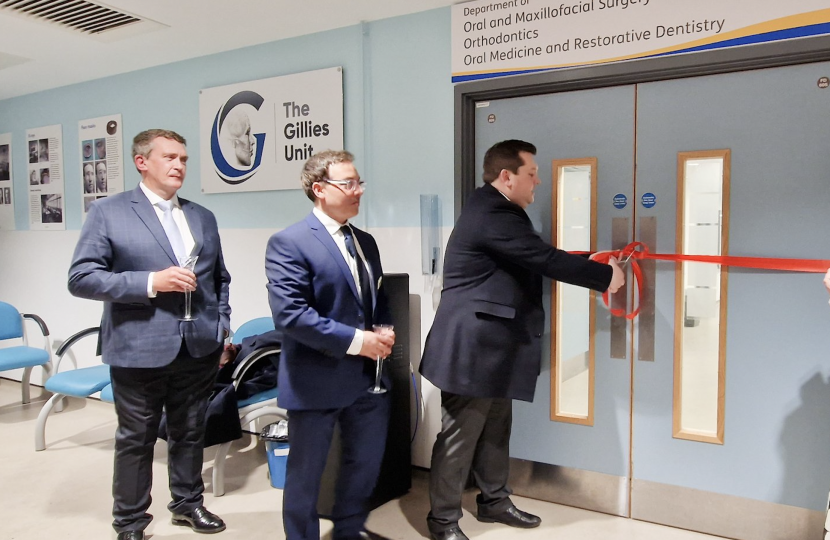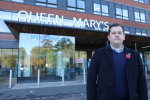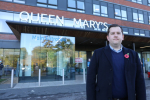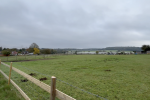
Louie French MP for Old Bexley and Sidcup had the honour of officially opening the Oral and Maxillofacial Surgery department - The Gillies Unit at Queen Mary’s Hospital.
The Gillies Unit provides a highly specialised orthodontic service for adults and children including treatments for dental and facial deformities, mouth and face cancers, head and neck skin cancers, tooth and face injuries and sleep apnoea.
The unit is named after Sir Harold Gillies who is widely considered to be the father of plastic surgery for his pioneering work in reconstructing the faces of injured soldiers during World War 1. Gillies witnessed the rise in horrific facial wounds inflicted by warfare and persuaded his medical chiefs that a dedicated hospital for facial injuries was required. This led to the establishment of the then called Queen’s Hospital (now Queen Mary’s Hospital) in 1917 in Sidcup which was the world’s first ever hospital dedicated to the treatment of facial injuries.
Louie made a speech at the event where he championed the pioneering work of Sir Harold Gillies, the history of our local hospital and thanked the hospital staff, Oxleas NHS Foundation Trust and King’s College Hospital NHS Trust who run the unit.
Louie welcomes the opening of this modern unit which will treat thousands of patients a year and is a fitting tribute to the work Sir Gillies undertook on the same site over 100 years ago. Louie also continues to campaign for extra services in our local hospital, including a Community Diagnostic Centre.
Commenting, Louie said:
“There is a quote by Sir William Arbuthnot Lane who said: "Men who save life never get the same appreciation and reward as those whose business it is to destroy it." I believe this unit with the continued recognition and practice of the foundations of Gillies pioneering work here goes some way to rectify this and I would like to pay tribute not only to Sir Harold Gillies and his practitioners and nurses, but to all the soldiers with facial injuries both those who Gillies rebuilt the faces of and the soldiers who did not have access to surgery, nor wished to undergo months and sometimes years of painful operations, as well as to the fantastic staff at this unit who are clearly a credit to Sir Gillies work. I would also like to thank the hospital and the Trust for your passion, expertise and care in treating patients here in Sidcup, over a century after Gillies’ work and the establishment of the original Queen’s Hospital on this exact site."



